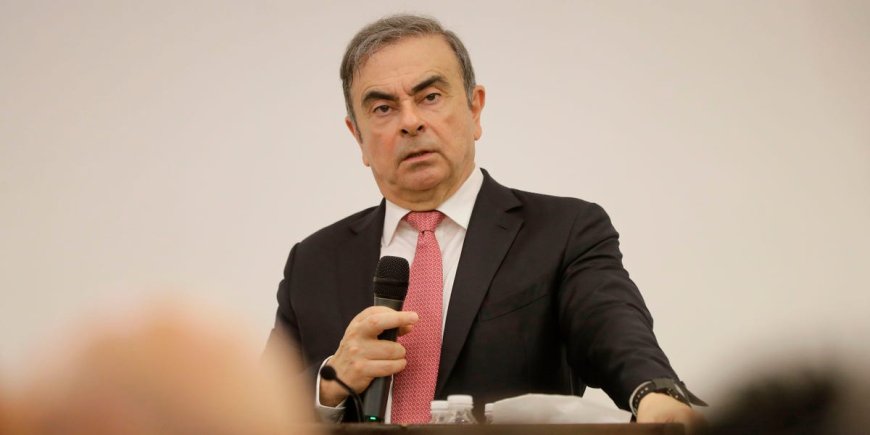Former Nissan CEO Carlos Ghosn calls the Nissan-Honda merger plan a 'desperate move'
"It's not a pragmatic deal because frankly, the synergies between the two companies are difficult to find," Ghosn told Bloomberg.

Joseph Eid/AFP via Getty Images
- Nissan and Honda are reportedly considering a merger.
- But former Nissan CEO Carlos Ghosn said the move suggests that Nissan is in "panic mode."
- "There is practically no complementarity between the two companies," Ghosn told Bloomberg on Friday.
The potential merger between Japanese automakers Nissan and Honda is a "desperate move," said Carlos Ghosn, Nissan's former CEO.
On Tuesday, Japanese newspaper Nikkei said the two companies are entering into merger negotiations.
Pooling their resources would allow Nissan and Honda to better compete against rivals in the electric vehicle space like Tesla and China's EV makers, the outlet reported.
Honda and Nissan are the second and third largest automakers in Japan, respectively. Their local rival, Toyota, is the world's biggest automaker.
A Nissan-Honda merger would result in the world's third-largest car company by volume.
Last week, Nissan and Honda told Business Insider that they are "considering various possibilities for future collaboration" but added that "no decisions have been made."
Ghosn said in an interview with Bloomberg on Friday that pursuing a merger with Honda suggests that Nissan is in "panic mode."
"It's not a pragmatic deal because frankly, the synergies between the two companies are difficult to find," Ghosn said.
"There is practically no complementarity between the two companies. They are on the same markets. They have the same products. The brands are very similar," he added.
Ghosn, Nissan, and Honda did not respond to requests for comment from BI.
Ghosn, once considered a legend in the auto industry, experienced a dramatic fall from grace in 2018.
The former CEO and chairman of the Renault-Nissan-Mitsubishi alliance was arrested in Japan and charged with financial crimes in November 2018.
Ghosn was detained in a Japanese jail for over 100 days, before he fled the country by smuggling himself to Lebanon in a musical-instrument case in December 2019.
The disgraced auto chief has maintained his innocence. Last year, Ghosn filed a billion-dollar lawsuit against Nissan in Lebanon for damaging his finances and reputation.
On Friday, Ghosn told Bloomberg that the Japanese government — specifically Japan's Ministry of Economy, Trade, and Industry — was likely behind the Nissan-Honda merger talks.
"So at the end of the day, they're trying to figure out something that could marry the short-term problems of Nissan and the long-term vision of Honda," Ghosn said.
The merger talks come at a precarious time for Nissan, which has been grappling with falling profits and decreased sales this year. Last month, Nissan cut 9,000 jobs globally in a bid to reduce costs. The company's stock is down 20.7% this year.
Nissan is also facing increased competition from Chinese EV makers like BYD, as automakers vie for market share in developing markets like Southeast Asia and Latin America. Data compiled by the technology firm ABI Research for BI showed that Chinese carmakers accounted for 70% of the EV market in Thailand and 88% in Brazil in the first quarter of this year.
Nissan initially led the EV race when it launched the world's first mass-market EV, the Leaf, in 2010.
But the Japanese car company's EV strategy has since floundered. Nissan is one of the few car manufacturers in the US without a hybrid or plug-in offering.
"Nissan finds itself now with a very poor lineup of products and without obvious leadership in EVs, and that's the direct result of poor management," Andy Palmer, the former chief operating officer of Nissan, told BI in November.
What's Your Reaction?






































